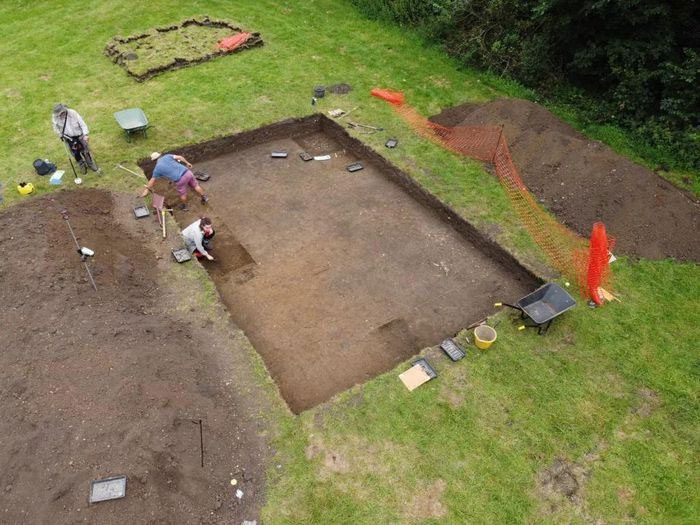Archaeologists in England may have discovered the long-lost monastery of Queen Cynethryth, the queen of the Kingdom of Mercia in the eighth century AD.
Cynethryth, who was married to King Offa, held an unusually high power for a woman at that time.
“Cynethryth is a fascinating figure, a leader with genuine status and influence in her lifetime,” said project leader Gabor Thomas, a professor of archaeology at the University of Reading in England.

Ruins of the monastery led by Queen Cynethryth recently discovered.
He added: “Not only are there coins minted with her image, but it is also known that when the powerful European leader Charlemagne wrote to his counterparts, he addressed both King Offa and Queen Cynethryth together, indicating that the two held equal standing.”
Queen Cynethryth was born into the royal family of Mercia and was likely a very capable and charismatic figure in her own right.
According to historical records, some time after Offa’s death, Cynethryth decided to govern a monastery. Thomas believes that the research team has found that monastery in the village of Cookham, adjacent to a modern church.
The monastery consisted of several wooden buildings. Inside, archaeologists discovered cooking and dining pottery, a bronze bracelet, a brooch, remnants of window glass, and animal bones from food. The presence of jewelry and window glass suggests that someone of high status governed the monastery, and the dates and location of the monastery support the research team’s idea that this was the monastery managed by Queen Cynethryth.
Thomas speculates that the monastery may have been home to most of the nuns; alternatively, it could have been a “double monastery,” housing both male and female monks.
Historical records indicate that Cynethryth died around 798 AD and was likely buried in the monastery. Future excavations may reveal her grave. Excavations at this site are still ongoing.

















































